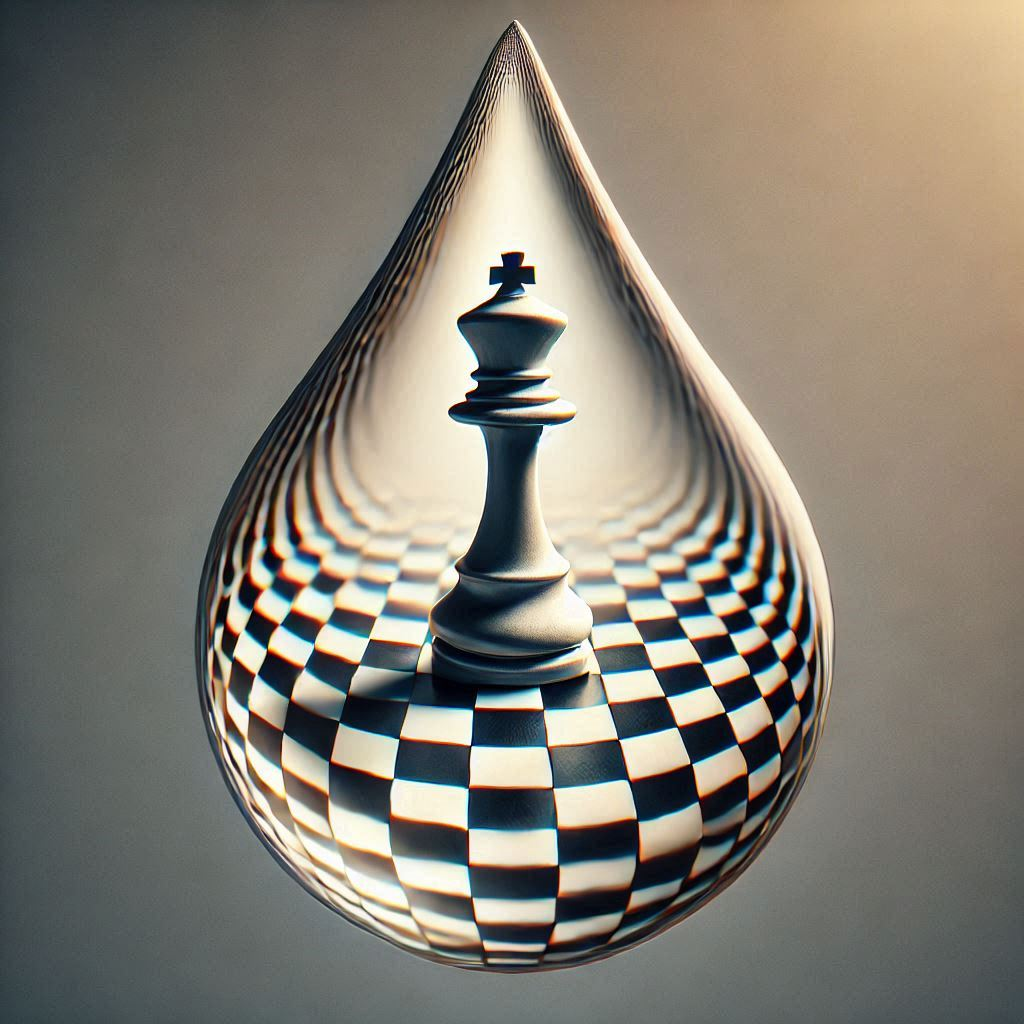Throughout my career I had the privilege to work on many complex products. At times I had to learn commercial banking processes for onboarding international corporations, or I was expected to have a deep understanding of medical claim adjudication, chemical reactions, or even seismic mapping of the subsurface.
One constant throughout my work on these diverse products was the opportunity to meet many incredibly smart individuals. These are people who dedicated decades to honing their skills, achieved mastery in their respective fields, and possess impressive academic credentials. People who have walls decorated with diplomas back home.
The Complexity Conundrum
Another constant was the consistent degree of skepticism or distrust I faced regarding my ability to become a true contributor. This skepticism always stemmed from the same reason–the belief that the complexity of their domain is beyond my comprehension.
The saddest part is that most people in my shoes would likely agree that the matter is too complex for them to grasp. They may think to themselves–how can someone like me, with no domain expertise and without fancy academic credentials, even begin to find common ground with a PhD statistician, chemical engineer, or geophysicist?

Fortunately (or so I believe), I lack the humility to admit that I can’t understand something.
I firmly believe that
Anything can be understood if explained simply, and that everything can be explained simply.
This life experience has allowed me to spend much time observing the people who are captivated by and obsessed with complexity.
What is it about complexity that is so enchanting that many hold it like a prized possession, as if saying “this is mine and mine only”?
Let’s start with this simple question.
What makes something Complex
We typically identify something as complex when it is difficult to understand and to master.
Like many other things in life, we tend to define them by their symptoms (how they make us feel) rather than by their characteristics.
This definition explains the recipient’s experience with facing something complex, but it does not explain the nature of complex.
So, what makes something complex, complex?
Something is typically classified as complex if it has one or both of the following characteristics:
1-Number of parts and their interconnectivity
This characteristic of complex is more aligned with its dictionary definition – “a whole made up of complicated or interrelated parts”.
It is quite obvious that the more parts we need to be aware of, the more difficult it is to understand — even if the parts themselves are easy to understand.
The online card game Hearthstone features about 5000 different cards. Each individual card is extremely simple, with only 5 pieces of data players should know about. But when asked to learn and play effectively with this amount of cards the game becomes very difficult to master.

Another example is chess. Chess is commonly known as one of the most difficult games to master, to the extent that even modern computers can’t compute every possible move in chess.
But the core rules and different moves in chess are quite simple. There are only 6 different pieces in chess, each with very simple move rules. It is very easy to teach chess to a new player, but it is incredibly difficult to play it at a professional level.
That’s because of the vast number of possible moves which is approximately this number 10¹²⁰ (Shannon number) — that’s something like this:
100000000000000000000000000000000000000000000000000000000000000000000000000000000000000000000000000000000000000000000000000000000000000000000000000000000000000000000000000000000000000000000000000000000000000000000000000000000000000000000000000000000000000000000000000000000000000000000000000000000000000000000000000000000000000000000000000000000000000000000000000000000000000000000000000000000000000000000000000000000000000000000000000000000000000000000000000000000000000000000000000000000000000000000000000000000000000000000000000000000000000000000000000000000000000000000000000000000000000000000000000000000000000000000000000000000000000000000000000000000000000000000000000000000000000000000000000000000000000000000000000000000000000000000000000000000000000000000000000000000000000000000000000000000000000000000000000000000000000000000000000000000000000000000000000000000000000000000000000000000000000000000000000000000000000000000000000000000000000000000000000000000000000000000000000000000000000000000000000000000000000000000000000000000000000000000000000000000000000000000000000000000000000000000000000000000000000000000000000000000000000000000000000000000000000000000000000000000000000000000000000000000000000000000000000000000000000000000000000000000000000000000000000000000000000000000000000000000000000000000000000000000000000000000000000000000000000000000000000000000000000000000000000000000000000000000000000000000000000000000000000000000000000000000000000000000000000000000000000000000000000000000000000000000000000000000000000000000000000000000000000000000000000000000000000000000000000000000000000000000000000000000000000000000000000000000000000000000000000000000000000000000000000000000000000000000000000000000000000000000000000000000000000000000000000000000000000000000000000000000000000000000000000000000000000000000000000000000000000000000000000000000000000000000000000000000000000000000000000000000000000000000000000000000000000000000000000000000000000000
Hearthstone, chess, global economics or weather systems demonstrate that even when individual elements are simple to grasp, the sheer number of elements and interactions can make something complex.
2- How foreign in the idea to us
The second important contributor to the sense of complexity, is how foreign this idea is to us.
Learning Mandarin or Swahili is much more difficult to a Spanish speaker than French or Italian.
Some ideas are universally known as complex ideas, because they are foreign to human experience and our perception regardless of our culture or background.
In science, relativity and quantum mechanics are known to be very difficult to understand, and that is because they are foreign to our experience and our intuition about the physical world. Richard Feynman himself said: “I think I can safely say that nobody understands quantum mechanics.”
Even commonly known ideas can be just as extraordinarily complex, like the concept of infinity.
Infinity is a concept that has perplexed and fascinated mathematicians and philosophers for centuries. It represents something that is boundless, endless, and without limit. This abstract notion challenges our finite human understanding, as we are accustomed to dealing with objects and quantities that have definite boundaries and measurements.

It ends with rain
Therefore, we must not let the perceived complexity of a subject deter us from exploring and understanding it. Whether it’s the intricate world of chess, the mysteries of quantum mechanics, the global economy, weather systems or any other field deemed “too complex”, remember that complexity is often a matter of perspective, not an inherent quality.
By acknowledging that complexity often arises from the sheer number of interconnected parts or the unfamiliarity of concepts, we can approach seemingly impenetrable subjects with more confidence. But perhaps the most surprising realization is this: embracing complexity might just reveal that the most intricate systems, the most profound theories, ultimately echo the elegance of a single, perfectly formed raindrop.

Complex🤔 was originally published in UX Planet on Medium, where people are continuing the conversation by highlighting and responding to this story.